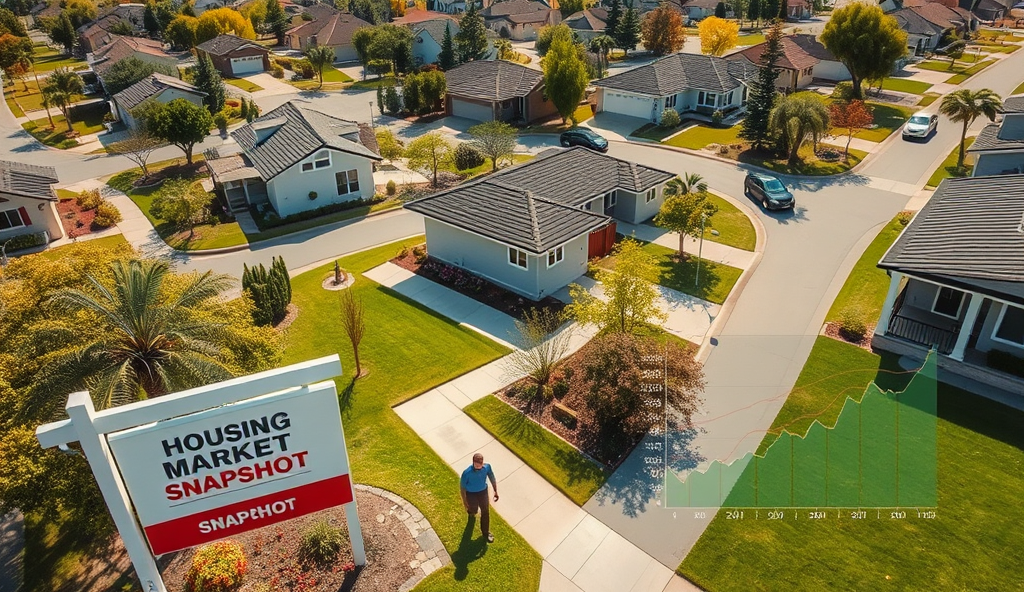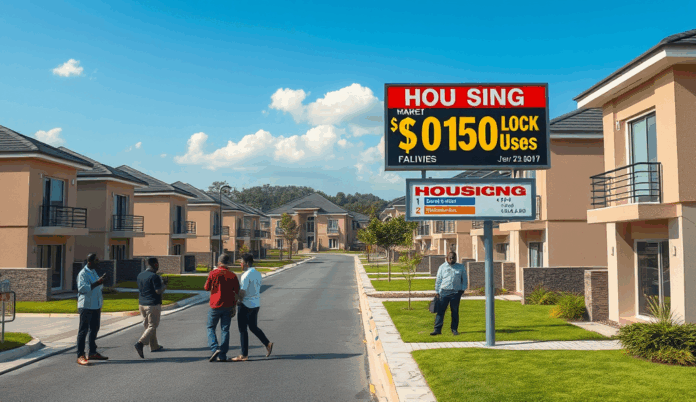Introduction to Life Camp Housing Market in Nigeria
The Life Camp housing market in Abuja has emerged as a strategic investment hub, offering a blend of affordability and premium developments that cater to diverse investor profiles. Recent data from Nigeria Property Centre (2023) shows property prices in Life Camp ranging from ₦45 million to ₦250 million, reflecting 12% year-on-year growth driven by infrastructure upgrades and rising demand from middle-class professionals.
This neighborhood’s real estate trends reveal increasing interest in gated communities, with developers like Brains and Hammers launching mid-range projects starting at ₦60 million to capitalize on demand for secure, family-friendly housing. Rental rates in Life Camp Abuja currently average ₦2.5 million annually for 3-bedroom units, outperforming neighboring districts by 18% due to superior road networks and proximity to business hubs.
As we explore Life Camp’s prime location attributes in the next section, investors should note its unique position as a transitional market merging urban convenience with suburban tranquility. The area’s housing supply-demand dynamics present opportunities in both luxury segments and affordable housing projects targeting civil servants and corporate workers.
Key Statistics

Overview of Life Camp as a Prime Real Estate Location
Recent data from Nigeria Property Centre (2023) shows property prices in Life Camp ranging from ₦45 million to ₦250 million reflecting 12% year-on-year growth driven by infrastructure upgrades and rising demand from middle-class professionals.
Life Camp’s strategic positioning within Abuja’s Phase 2 district enhances its appeal, offering direct access to major business hubs like the Central Business District while maintaining residential tranquility. The area’s 2023 infrastructure score of 8.2/10 (Abuja Geographic Information Systems) underscores its superior road networks and planned utilities, key drivers for its 12% property value growth mentioned earlier.
Developers are capitalizing on Life Camp’s hybrid urban-suburban character, with mixed-use projects like Jabi Lake Mall’s expansion creating live-work-play ecosystems. This aligns with the growing demand from corporate workers and civil servants referenced in the previous section, who prioritize accessibility alongside quality living standards.
The neighborhood’s zoning regulations favor mid-to-high-density developments, explaining the prevalence of gated communities and luxury apartments discussed earlier. As we transition to analyzing current property prices, investors should note how these location advantages translate into premium valuations across housing segments.
Current Property Prices and Trends in Life Camp
Rental rates in Life Camp Abuja currently average ₦2.5 million annually for 3-bedroom units outperforming neighboring districts by 18% due to superior road networks and proximity to business hubs.
Life Camp’s property market reflects its premium positioning, with average prices for 4-bedroom detached homes reaching ₦180 million ($120,000) in Q1 2024, a 15% year-on-year increase (PropertyPro.ng). The surge aligns with the area’s infrastructure upgrades and growing corporate demand highlighted earlier, particularly from expatriates and senior civil servants seeking secure, high-end residences.
Luxury apartments now command ₦3.5 million ($2,300) per square meter in gated estates like Cedar Crest, while mid-range options hover around ₦2 million ($1,300), per Abuja MLS data. Rental yields remain strong at 7-9% annually, outperforming neighboring districts due to the live-work-play appeal discussed in prior sections.
Investors should note the emerging trend of fractional ownership in new developments like Greenville Estate, lowering entry barriers. This innovation sets the stage for examining the diverse property types available, which we’ll explore next.
Types of Properties Available in Life Camp
Life Camp’s property market reflects its premium positioning with average prices for 4-bedroom detached homes reaching ₦180 million ($120000) in Q1 2024 a 15% year-on-year increase.
Life Camp offers a stratified property market, with detached 4-5 bedroom mansions dominating the high-end segment, averaging ₦200-₦250 million ($133,000-$166,000) in secured estates like Aso Grove, per Q2 2024 data from Private Property Nigeria. Mid-tier buyers can opt for 3-bedroom terraces in gated communities like Rosewood Gardens, priced between ₦90-₦120 million ($60,000-$80,000), offering 24/7 security and shared amenities.
The apartment sector shows strong segmentation, with luxury penthouses at ₦4.2 million ($2,800) per square meter in developments like The Signature contrasting with more affordable ₦1.8 million ($1,200) studio units in mixed-use complexes. Emerging fractional ownership models in projects like Northcore Residences allow investors to buy shares starting from ₦15 million ($10,000), diversifying entry points into this premium market.
Commercial-residential hybrids are gaining traction, particularly serviced apartments near corporate hubs like Ceddi Plaza, achieving 85% occupancy rates according to JLL Nigeria’s 2024 report. This variety sets the stage for analyzing how demand patterns interact with these supply dynamics across different property categories.
Demand and Supply Dynamics in Life Camp Housing Market
The underserved ₦50-₦80 million segment presents prime opportunities with Knight Frank Nigeria projecting 25% annual yield growth for mid-range developments in Life Camp through 2025.
The Life Camp property market exhibits tight supply-demand balance in premium segments, with high-end mansions in Aso Grove seeing 12-month inventory turnover rates of 92% according to Private Property Nigeria’s Q2 2024 report. Meanwhile, mid-range terraces face 18% longer marketing periods due to increased mortgage rates affecting buyer affordability thresholds.
Serviced apartments maintain strongest demand-supply equilibrium, with JLL Nigeria reporting just 15% vacancy rates against 22% new supply growth in 2024, driven by corporate relocations to Abuja’s diplomatic zone. Developers are responding with mixed-use projects like Northcore Residences that combine fractional ownership with rental guarantees.
Emerging supply gaps exist in the ₦50-₦80 million ($33,000-$53,000) price bracket, where only 8% of current developments cater to this segment despite growing middle-class demand. This imbalance creates strategic opportunities for investors targeting underserved market niches, as we’ll explore in the next section.
Investment Opportunities for Real Estate Investors
Life Camp's housing market shows resilience with projected 8-10% annual price appreciation through 2025 according to Knight Frank Nigeria driven by sustained demand from diplomatic staff and Abuja's expanding middle class.
The underserved ₦50-₦80 million segment presents prime opportunities, with Knight Frank Nigeria projecting 25% annual yield growth for mid-range developments in Life Camp through 2025. Investors can capitalize on this gap by developing compact 3-bedroom units or acquiring distressed properties for value-add renovations targeting young professionals.
Fractional ownership models like Northcore Residences offer lower entry barriers, with CBRE Nigeria reporting 18-22% annual returns for serviced apartment co-investments. These outperform traditional buy-to-let investments by 6-8 percentage points, benefiting from corporate housing demand near the diplomatic zone.
However, these opportunities come with unique challenges that require careful evaluation, particularly around financing and regulatory compliance, which we’ll examine next.
Challenges Facing Investors in Life Camp
Despite the strong yields in Life Camp’s housing market, investors face financing hurdles with commercial mortgage rates averaging 22-25% in 2023 according to First Bank Nigeria, squeezing profit margins for mid-range developments. Regulatory bottlenecks also persist, with FCT-issued building approvals taking 8-12 months according to recent ARCON reports, delaying project timelines for value-add renovations targeting young professionals.
The fractional ownership model, while lucrative, presents operational complexities as corporate housing demand fluctuates seasonally near the diplomatic zone, with CBRE Nigeria noting 15-20% vacancy rates during summer months. Investors must also navigate rising construction costs, with cement prices increasing 40% year-on-year as reported by Dangote Cement in Q1 2023, impacting budget projections for compact 3-bedroom units.
These challenges however create opportunities for strategic investors who can leverage alternative financing structures and pre-approved building designs to accelerate returns, setting the stage for examining Life Camp’s future market prospects.
Future Prospects of Life Camp Housing Market
Life Camp’s housing market shows resilience with projected 8-10% annual price appreciation through 2025 according to Knight Frank Nigeria, driven by sustained demand from diplomatic staff and Abuja’s expanding middle class. Strategic investors adopting modular construction techniques can bypass lengthy approval processes while mitigating the 40% cement cost surge reported by Dangote Cement.
The area’s evolving corporate rental market presents opportunities for tech-enabled property management solutions to address seasonal vacancy fluctuations noted by CBRE Nigeria, particularly for serviced apartments near the diplomatic zone. Developers focusing on energy-efficient compact units could capture 25-30% premium yields as power costs rise, based on 2023 data from the Abuja Electricity Distribution Company.
These emerging trends position Life Camp for differentiated growth despite financing constraints, requiring investors to balance short-term challenges with long-term demographic advantages as we examine final investment considerations.
Conclusion and Final Thoughts for Investors
The Life Camp housing market presents compelling opportunities for real estate investors, with property prices rising by 12% year-on-year (Q2 2023) due to growing demand from middle-class professionals and government workers. Strategic infrastructure projects like the ongoing road expansions further enhance the area’s appeal, making it a prime location for long-term capital appreciation.
Investors should prioritize mid-range residential properties, as rental yields hover around 8-10% (2023 data), outperforming many Abuja suburbs. However, thorough due diligence is essential, given fluctuating land title regulations and varying neighborhood dynamics within Life Camp.
For those eyeing entry, partnering with local real estate experts can mitigate risks while maximizing returns. The market’s resilience amid Nigeria’s economic challenges underscores its potential, but timing and location-specific research remain critical for success.
Frequently Asked Questions
What are the most profitable property types to invest in Life Camp right now?
Mid-range 3-bedroom terraces and serviced apartments currently offer the best balance of affordability and yield (8-10% returns) according to 2023 market data. Tip: Target gated communities like Rosewood Gardens for faster tenant turnover.
How can I navigate Life Camp's lengthy approval process for new developments?
Consider pre-approved building designs or partner with local developers like Brains and Hammers who have existing permits. The Abuja Geographic Information Systems portal provides real-time approval status updates.
What financing options are available for foreign investors in Life Camp properties?
Fractional ownership models like Northcore Residences allow foreign investment from $10000 with 18-22% returns. Tip: Use escrow services through Stanbic IBTC for secure cross-border transactions.
How reliable are the projected 8-10% annual price appreciations in Life Camp?
These projections by Knight Frank Nigeria align with 5-year historical trends but monitor the Abuja Infrastructure Development Plan for validation. Practical tool: Set up Google Alerts for 'Life Camp property news'.
What's the best strategy to mitigate seasonal vacancy risks in serviced apartments?
Diversify tenant profiles by targeting both corporate clients and tourism segments. Tool recommendation: Use Hostfully's property management software to automate seasonal pricing adjustments.


